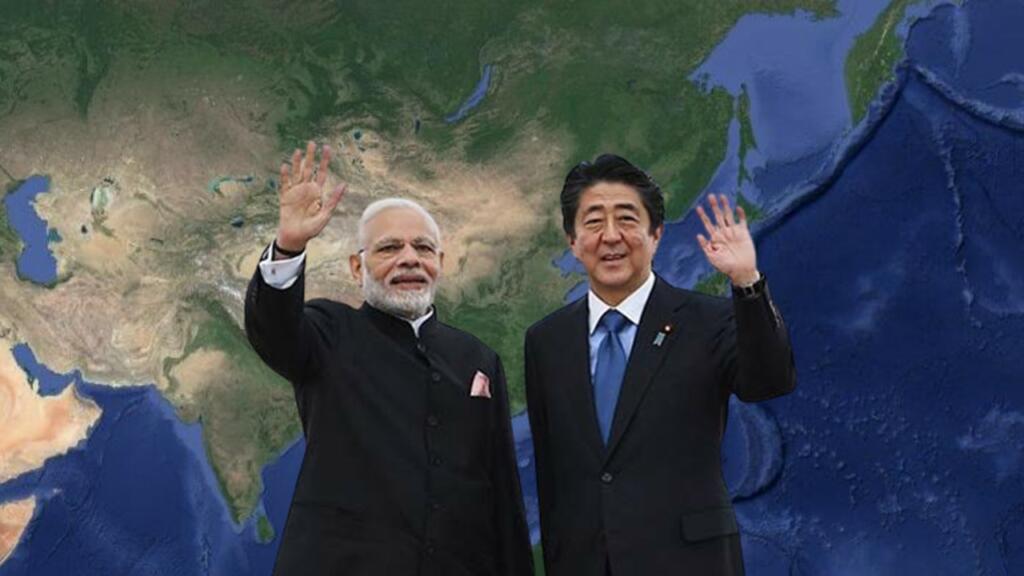Shinzo Abe, the longest-serving post-war PM of Japan was shot yesterday in the western city of Nara. He succumbed to the injuries and in this way, Japan lost its nationalistic leader and India lost a dear friend. For Indians, the demise of Padma Vibhushan Shinzo Abe feels like a personal loss.
India-Japan ties under Shinzo Abe
India-Japan ties have been soaring except for one instance when Japan sided with the US on India’s nuclear test. After the Pokhran-II nuclear tests in 1998, Japan condemned India and participated in international sanctions against India along with the United States. India understood the pain of a nation which has been the only victim of nuclear weapons and its objection to nukes.
However, since then India’s relationship with Japan has been on the rise. The most remarkable day in the history of India-Japan ties was in 2007 when then Japan PM Shinzo Abe delivered a historic speech in the Indian parliament. The speech titled, “Confluence of the Two seas” called on India to think big. The onus came upon India to think how it could block the Malacca Strait and choke the paper dragon. Abe emphasised that India’s “geopolitical footprint” should not be confined to the Indian Ocean only, and thus he coined the concept of Indo-Pacific decimating China’s Asia Pacific.
Abe was the first leader who not only realised India’s importance as a major democratic power in the South-Asian region. The real revival was initiated under the combined leadership of PM Narendra Modi and Abe, both of whom shared a special rapport.
Abe poked the Dragon in the eyes
Shinzo defined Japan’s strategic outlook that was a synchronised and cohesive security policy to deal with threats. Shinzo’s ‘Abenomics’ became popular around the world. He rolled out the Official Secrets Acts to curb the outflow of critical intelligence to other countries. He criminalised espionage to curb the menace of Chinese student spies. Not only this, he opened his arsenal against Beijing for its misadventure in Taiwan. It was Shinzo Abe who kept China from invading Taiwan.
Abe realised the importance of being a military power in the ever-changing world keeping the expansionism of China in mind. Shinzo looked at India as the Asian power that could contain China’s assertiveness and hence looked up to India for allegiance on the issue of China.
He brought together the democracies together from the West to Australia, with a major role of India, and formed QUAD.
How Abe transformed Japan
Japan followed pacifism, until the arrival of Shinzo Abe. Pacifism of such a level, that the armed forces of Japan were referred to as self-defence forces. Abe left no stone unturned in converting Japan into an assertive military power and pulled it from pacifist restrictions.
Abe also oversaw the making of Japan’s first aircraft carrier since World War II. In 2012, Abe began his second stint with a rise in defence spending to protect the Senkaku Islands, which are claimed by China. He even gave a go-ahead to expand Japan’s ballistic missile defence capabilities. To your surprise, Abe even floated the idea of Japan hosting American nukes.
Japan did not only mature under Abe but was born as a sovereign state under him. He unveiled the reality of the world in front of the Japanese, who imagined the world as utopic and unrealistic Lalaland.
Vassal state and Shinzo Abe
Not known to many that for a very long time, Japan functioned as a vassal state of the United States. The constitution of countries like Japan and Germany were occupied after the second world war and were written by the western invaders. US General Douglas Mac Arthur shaped Japan’s constitution, which eliminated Japan’s ability to wage war.
Shinzo Abe was the first leader in the history of post-war Japan who openly called to end the vassal state status of Japan. From the period of WWII to Cold War, Japan was already a booming economy. He even called for changes in Japan’s ‘peace constitution’.
Abe was the world’s best geopolitics strategist and world leaders should take a lesson from him. Once it was said, ‘you cannot change the world order without sacrificing some lives’ and this seems to have come true in the case of Shinzo Abe. The West wants to maintain its hegemony and it was not possible with Abe alive. The sacking of Boris Johnson can be seen in the same light. To end its geopolitics and in this world, the equations change very rapidly.
Support TFI:
Support us to strengthen the ‘Right’ ideology of cultural nationalism by purchasing the best quality garments from TFI-STORE.COM.
